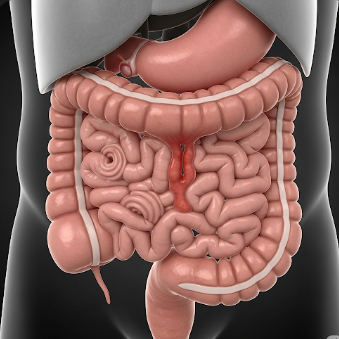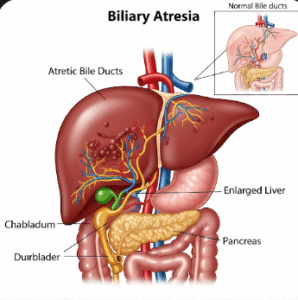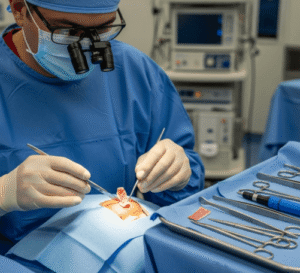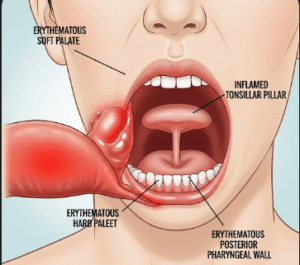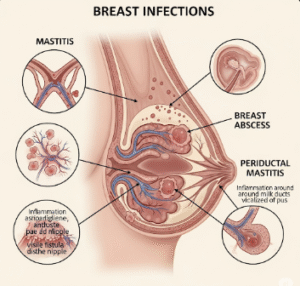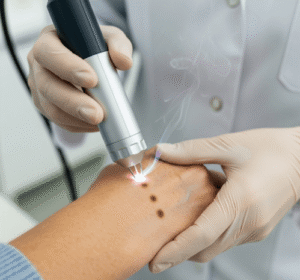Overview
Bowel obstruction is a serious medical condition where the small or large intestine is partially or completely blocked, preventing the normal passage of digestive contents. This blockage can cause severe abdominal pain, vomiting, bloating, and constipation, and if untreated, it can lead to life-threatening complications such as tissue death or perforation.
In Korea, bowel obstruction is managed in emergency and surgical units, combining advanced imaging for diagnosis, conservative management when appropriate, and minimally invasive or open surgical interventions. Korean hospitals emphasize early detection, prompt treatment, and multidisciplinary care to reduce complications and improve recovery outcomes.
What is Bowel Obstruction?
Bowel obstruction occurs when the flow of intestinal contents is blocked, either mechanically or functionally:
- Mechanical obstruction: Physical blockage due to adhesions, tumors, hernias, strictures, or impacted stool
- Functional obstruction (ileus): Intestinal muscles fail to contract effectively, often after surgery, infection, or certain medications
Obstructions can involve the small intestine (small bowel obstruction) or the large intestine (large bowel obstruction), each with distinct causes, symptoms, and management strategies.
Symptoms
Symptoms of bowel obstruction may develop suddenly or gradually depending on the cause:
- Abdominal pain and cramping: Often intermittent but severe
- Bloating and abdominal distension
- Nausea and vomiting: Vomiting may contain bile or fecal matter in advanced cases
- Constipation or inability to pass gas
- Loss of appetite and general weakness
- High-pitched bowel sounds initially, which may become absent in severe obstruction
- Signs of dehydration: Dry mouth, low urine output, and dizziness
Severe or prolonged obstruction can lead to peritonitis, sepsis, and shock, requiring immediate medical intervention.
Causes
Bowel obstruction can result from various mechanical and functional factors:
Mechanical causes:
- Adhesions: Scar tissue from previous surgeries (most common in small bowel obstruction)
- Hernias: Intestine trapped in abdominal wall defects
- Tumors: Colon cancer or other intra-abdominal masses
- Inflammatory strictures: Crohn’s disease or diverticulitis
- Impacted stool or foreign bodies
Functional causes:
- Paralytic ileus: Often following abdominal surgery, infections, or electrolyte imbalances
- Medications: Opioids or anticholinergics affecting intestinal motility
- Neurological disorders: Diabetes, Parkinson’s disease, or spinal cord injuries
Risk Factors
- Previous abdominal or pelvic surgery increasing adhesion risk
- History of hernias or abdominal wall defects
- Chronic intestinal diseases such as Crohn’s disease or diverticulitis
- Colon cancer or intra-abdominal tumors
- Elderly age: Reduced intestinal motility and higher prevalence of comorbidities
- Use of certain medications that slow bowel movement
- Injury or trauma to the abdomen
Complications
Untreated bowel obstruction can lead to serious and potentially fatal complications:
- Bowel ischemia or necrosis: Reduced blood supply causing tissue death
- Perforation: Leakage of intestinal contents into the abdominal cavity, causing peritonitis
- Sepsis: Life-threatening systemic infection
- Severe dehydration and electrolyte imbalance
- Chronic constipation or malnutrition in recurrent cases
- Prolonged hospital stay and impaired quality of life
Prevention
While not all cases are preventable, the following strategies help reduce risk and recurrence:
- Careful post-surgical monitoring to detect early adhesions or complications
- Regular follow-up for chronic intestinal conditions
- Early treatment of hernias and intra-abdominal tumors
- Healthy diet: High-fiber foods to maintain regular bowel movements
- Adequate hydration
- Avoidance of medications that impair intestinal motility when possible
- Prompt evaluation of abdominal pain, bloating, or changes in bowel habits
Treatment Options in Korea
Diagnosis
Accurate diagnosis is crucial for determining cause, location, and severity:
- Physical examination: Abdominal distension, tenderness, and bowel sounds
- X-rays: Detect air-fluid levels and dilated bowel loops
- CT scans: Identify exact site, cause, and complications such as ischemia
- Ultrasound: Useful for pediatric or pregnant patients
- Laboratory tests: Assess dehydration, electrolyte imbalance, infection, and inflammation
Medical Management
- Conservative treatment may be effective for partial small bowel obstruction:
- Nasogastric tube to decompress the stomach and relieve vomiting
- Intravenous fluids to correct dehydration and electrolyte imbalance
- Pain management and monitoring
- Bowel rest: Nothing by mouth (NPO) until obstruction resolves
- Antibiotics: Used if infection or perforation is suspected
Surgical Management
Surgery is indicated when conservative measures fail or complications are present:
- Adhesiolysis: Removal of adhesions causing obstruction
- Resection of necrotic or tumor-affected bowel
- Hernia repair to relieve trapped intestine
- Colostomy or ileostomy in cases where temporary or permanent diversion is necessary
- Minimally invasive laparoscopic surgery is preferred in Korea to reduce recovery time and complications
Supportive Care
- Nutritional support: Parenteral nutrition if prolonged bowel rest is required
- Physical rehabilitation: Prevent deconditioning during hospitalization
- Pain and symptom management
- Monitoring for recurrence through regular follow-ups and imaging
Prognosis
Prognosis depends on cause, location, duration, and promptness of treatment:
- Early detection and intervention usually lead to full recovery
- Partial obstructions often resolve with conservative management
- Severe or complete obstructions may require surgery but have good outcomes in Korea due to advanced surgical techniques and ICU support
- Complications like ischemia or perforation increase mortality risk, emphasizing the importance of timely treatment
- Postoperative care and monitoring reduce recurrence and improve quality of life
Korean hospitals provide state-of-the-art imaging, surgical, and intensive care services, ensuring that patients with bowel obstruction have high recovery rates and minimal long-term complications.

